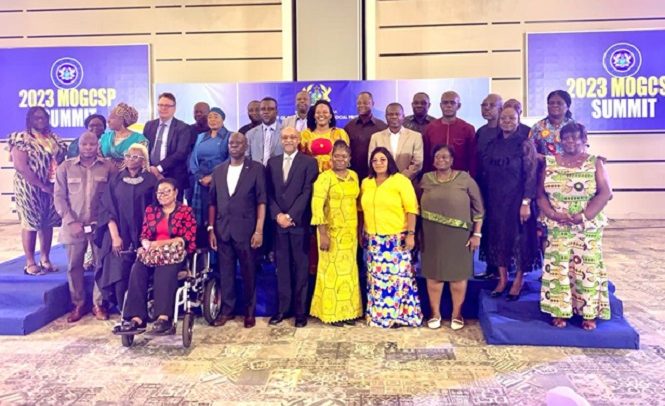The Affirmative Action Bill, a temporary measure that seeks to promote women’s participation and representation in decision making spaces has received approval from Cabinet.
The Ministry of Gender Children and Social Protection (MOGCSP) spearheading the Bill announced this at the opening of the 2023 annual summit of the ministry in Accra.
“The Ministry is pleased to announce that, Cabinet on the 29th September, 2023 gave approval for the Affirmative Action Bill,” Minister For Gender, Children And Social Protection, Lariba Zuweira Abudu said.
She noted that the Bill has subsequently been submitted to Parliament for consideration under a certificate of urgency.
“Other critical Bills and Policies were also submitted to Cabinet for consideration and approval,” she added.
Madam Abudu said the ministry stands for an inclusive society that ensures all citizens have equal opportunity to participate in nation building.
“We stand for a society where children, women, and men irrespective of their status have the chance to realize their full potential,” she said.
Madam Abudu also noted that the ministry has undertaken vigorous awareness campaigns on Child Rights Promotion, Social Protection, Child Marriage, Human Trafficking, Domestic Violence among others at national, regional, districts and community levels.
“Response services were also given to victims of abuse, domestic violence, and human trafficking during the period under review. This includes the use of the SWCES to response to grievances in social protection programming and the Orange Support Center for victims of domestic violence,” she said.
The sector minster said in collaboration with key partners, the integrated Social Services in now in 170 MMDAs with 160 enrolled unto the Social Welfare Information Management Systems (SWIMS) for effective case management and referrals.
“In addition, the Ministry is up to date on our payments to LEAP beneficiaries and School Feeding Caterers. As I speak the 6th cycle of LEAP payments is ongoing,” she said.
She opined that the given the role social protection and welfare service play in the protection of the vulnerable, we need to ensure our programmes create opportunities for their full participation in governance as well as inclusion in the local economy.
“Financial inclusion plays a pivotal role in this endeavor. It is not merely about providing the vulnerable with monetary support, but also about empowering them with the tools and knowledge to manage their finances, make informed decisions, and contribute meaningfully to our economy. Access to credit, savings mechanisms, and insurance must be made available and tailored to the unique needs of the most marginalized,” she said.


